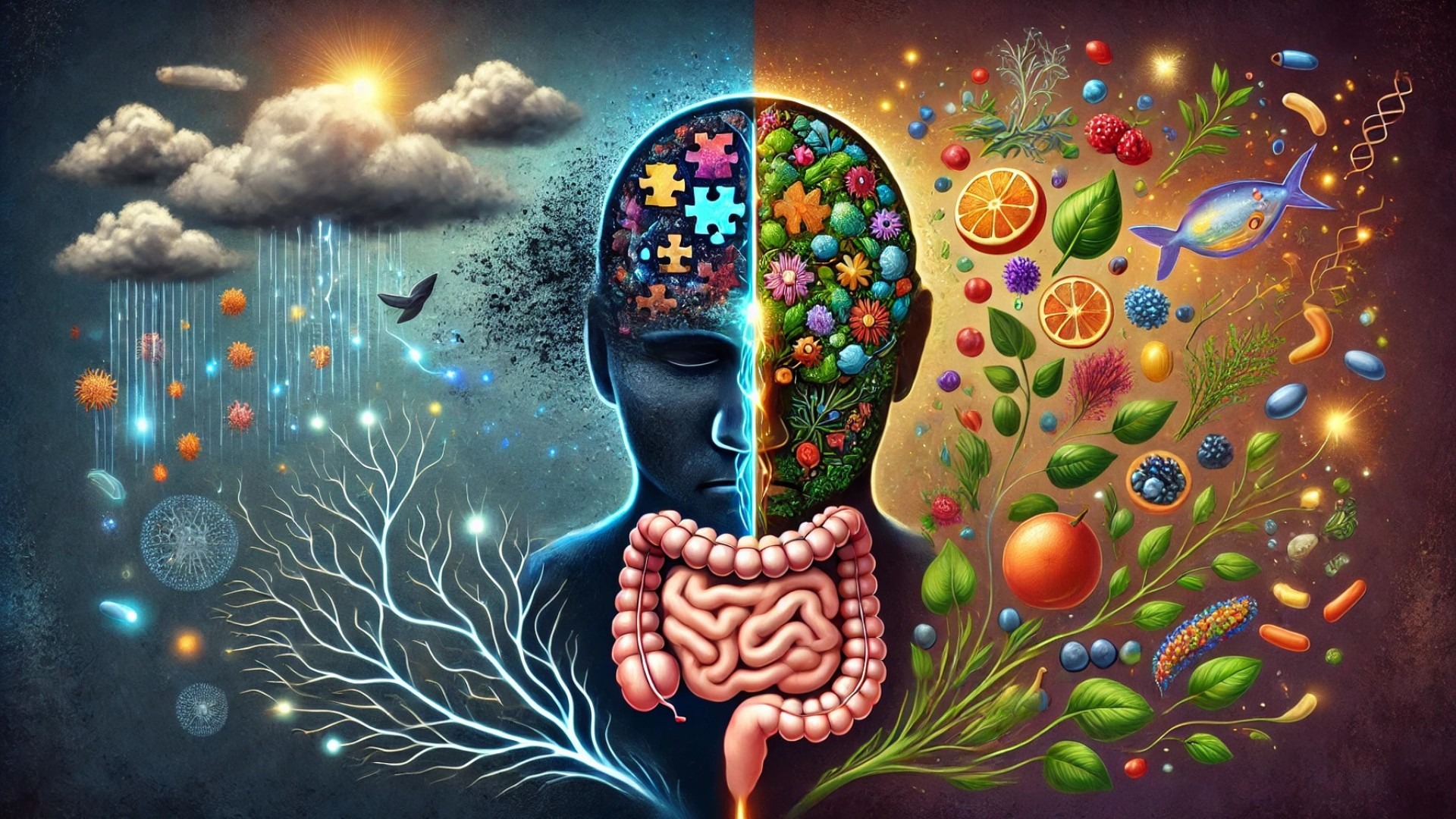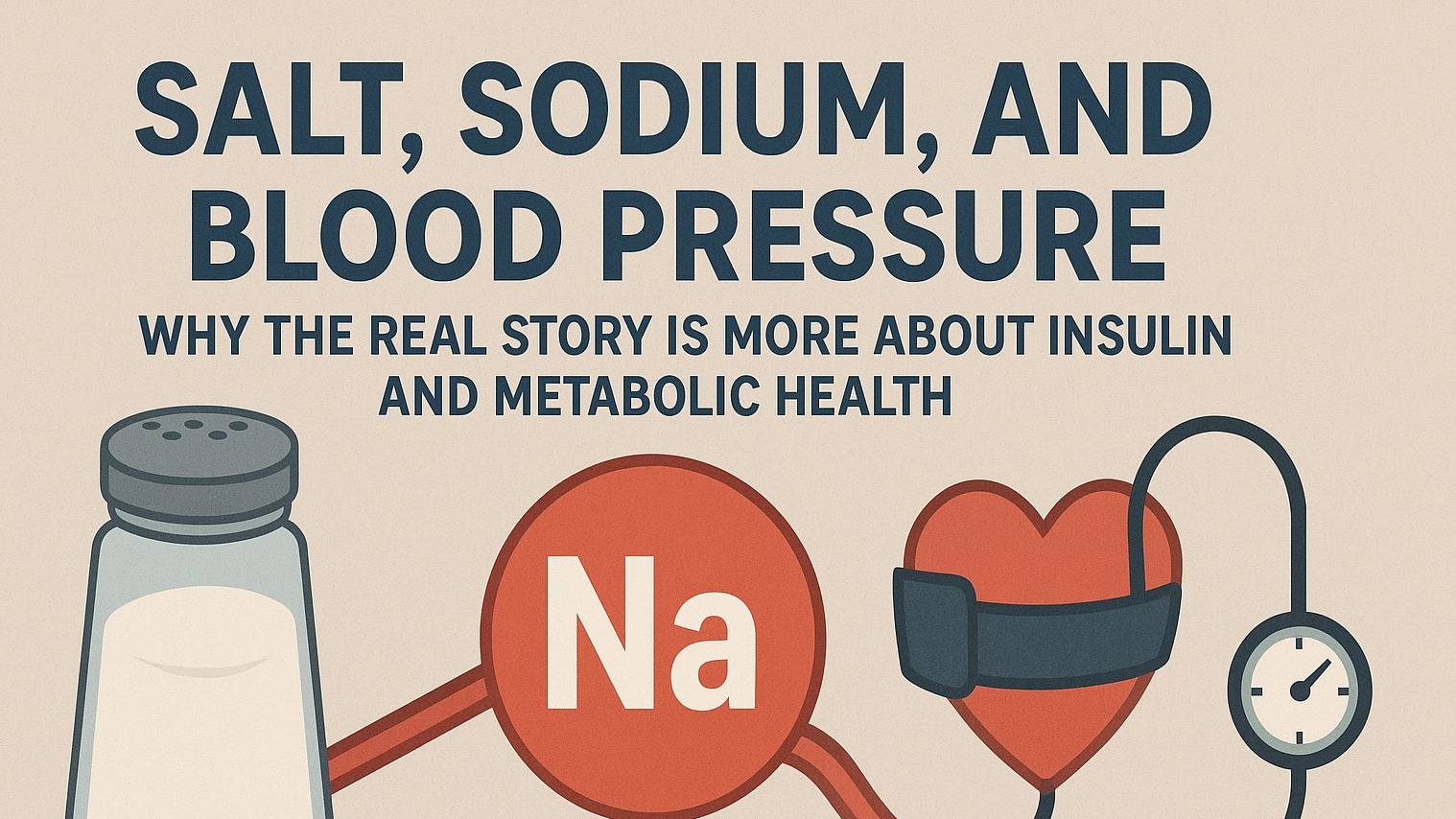
Mental health challenges are no longer whispers in the dark. They are part of the collective human experience—affecting millions in the form of depression, anxiety, PTSD, ADHD, OCD, insomnia, fatigue, and even neurodegenerative diseases like dementia. While medication and therapy have their place, a groundbreaking movement in functional nutrition is shifting how we think about mental well-being—from the neck up to the gut down.
Welcome to the world of nutritional psychiatry—where food isn’t just fuel; it’s information that speaks directly to your brain chemistry.
The Gut-Brain Connection: What’s Food Got to Do With It?
According to Harvard-trained psychiatrist and nutrition expert Dr. Uma Naidoo, your brain is wired to your gut through the gut-brain axis—a two-way communication system involving the vagus nerve, immune system, neurotransmitters like serotonin, and even gut bacteria themselves.
Dr. Mark Hyman explains this in his podcast The Science of Mood and Your Microbiome, describing how microbial imbalance (dysbiosis), processed food, sugar, and inflammatory fats disrupt brain chemistry, mood, and focus.
In fact, 90% of serotonin, the feel-good neurotransmitter, is made in the gut—not the brain. So if your gut is inflamed, leaky, or overrun by bad bacteria, your mood is likely to crash too.
Mental Health Conditions and Their Functional Nutrition Roots
Let’s explore how functional nutrition targets common mental health issues at their roots:
Depression
What’s happening? Inflammation in the brain, poor neurotransmitter production, and nutrient deficiencies (B12, folate, omega-3s) can all contribute.
Food as therapy: Leafy greens, wild salmon, walnuts, eggs, and fermented foods. These nourish the microbiome, reduce inflammation, and support serotonin production.
Avoid: Refined sugar, alcohol, ultra-processed foods—they feed the wrong microbes and fuel inflammation.
Anxiety
What’s happening? Chronic stress depletes magnesium and B vitamins, both essential for calming the nervous system.
Food as therapy: Pumpkin seeds, avocados, dark chocolate (85%+), chamomile tea, and probiotic-rich foods like sauerkraut or kefir can soothe anxiety by restoring mineral balance and microbiome harmony.
PTSD
What’s happening? Trauma alters the HPA axis and gut flora. People with PTSD often show higher markers of inflammation and oxidative stress.
Food as therapy: Turmeric (with black pepper), wild blueberries, green tea, and omega-3 fatty acids can calm neuroinflammation and support emotional resilience.
ADHD
What’s happening? Dysbiosis, food sensitivities, and blood sugar imbalances often underlie focus issues.
Food as therapy: High-quality protein (e.g., eggs, salmon, grass-fed beef), omega-3s, and magnesium-rich foods. Removing artificial dyes, added sugar, and gluten may also help.
Functional insight: ADHD brains need stable fuel—so timing meals and snacks with protein and healthy fat is key.
OCD
What’s happening? Often linked to abnormal serotonin activity and possibly autoimmune reactions to streptococcal infections (PANDAS).
Food as therapy: Nutrients that stabilize neurotransmitter production—zinc, B6, and tryptophan—along with anti-inflammatory diets may improve symptoms.
Insomnia
What’s happening? Gut dysbiosis, low melatonin, and unstable blood sugar at night can disrupt sleep.
Food as therapy: Tart cherries (natural source of melatonin), magnesium-rich greens, nuts, and complex carbs at dinner support restful sleep.
Avoid: Caffeine after 2pm, alcohol, and high-sugar foods before bed.
Fatigue
What’s happening? Chronic inflammation, mitochondrial dysfunction, and nutrient depletion can make you feel like you’re running on empty.
Food as therapy: Beets, leafy greens, eggs, liver, and adaptogens (ashwagandha, maca) can support energy and cortisol balance.
Dementia and Cognitive Decline
What’s happening? The brain begins to shrink with insulin resistance, oxidative damage, and inflammation—often starting decades before diagnosis.
Food as therapy: MIND and ketobiotic diets—rich in extra virgin olive oil, nuts, greens, fatty fish, herbs, and fermented veggies—protect neurons and promote neurogenesis.
Dr. Naidoo’s tip: Minimize added sugar, processed meats, and fried foods—known brain saboteurs.
The Microbiome Prescription: Daily Tips for a Healthy Mind
Feed your gut bugs: Prebiotic fiber (onions, garlic, leeks, asparagus), probiotic foods (yogurt, kefir, kimchi), and polyphenols (berries, green tea).
Support brain fats: Omega-3s from fatty fish, chia seeds, flaxseed oil.
Eat the rainbow: Each color supports different antioxidant and anti-inflammatory pathways.
Ditch the sugar and ultra-processed foods: They wreck your gut, inflame your brain, and spike your blood sugar.
Time your eating: Circadian rhythm fasting or early time-restricted eating can reduce brain fog and improve sleep quality.
Hydrate wisely: Green tea, herbal teas, and filtered water help flush toxins and support the brain-gut axis.
Conclusion: The Kitchen is Your Mental Health Clinic
What you eat isn’t just fuel—it’s the raw material your brain uses to think, feel, remember, and cope. Both Dr. Uma Naidoo and Dr. Mark Hyman have helped elevate this truth: you can’t heal a broken brain with a broken diet.
Functional nutrition empowers you to be the CEO of your mental health. Whether you're managing anxiety or working to prevent cognitive decline, every meal is a choice—to inflame or to heal.
Ready to get started? Begin by adding just one gut-boosting, brain-loving food to your day—like a handful of walnuts or a serving of fermented vegetables. Tiny habits can lead to big breakthroughs.
 Add Row
Add Row  Add
Add 










Write A Comment